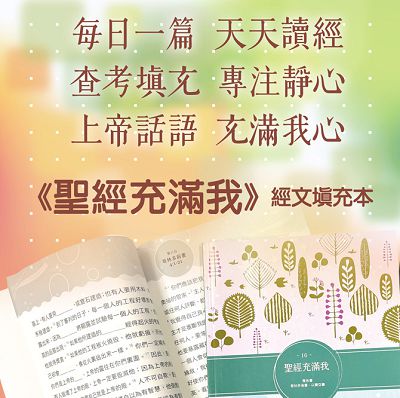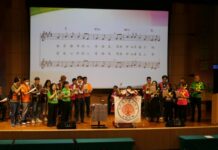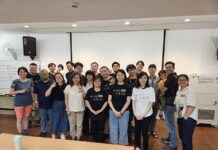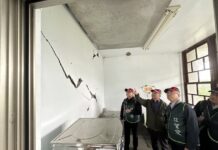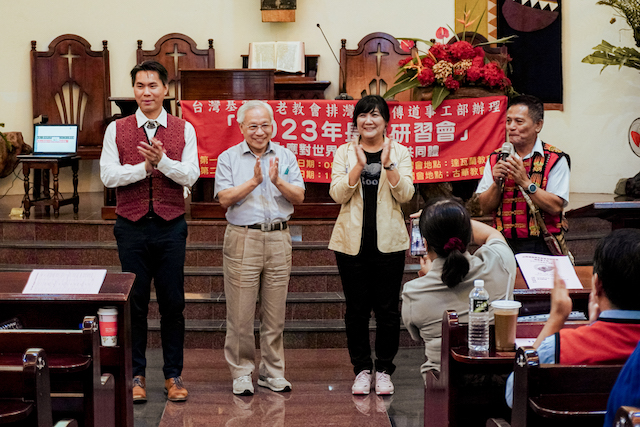
Taiwan Church News
3729 Edition
August 14 ~ 20, 2023
Weekly Topic
Break Down the Dividing Wall and Build Up Taiwan via the Faith Community
Reported by Lin Wan-ting from Pingtung
Translated by Peter Wolfe
On August 12, the Mission Committee of Payuan Presbytery held a seminar for elders and deacon at the Tjavadran church. Based on the scripture verse of Micah 4:3, the seminar was entitled as “A Faith Community to Respond the World Challenge”. Many renowned guests were invited to deliver speeches, including Rev Ng Pek-ho, director of Academy for Contextual Theologies in Taiwan, Dr Ljavakawa Tjaljimaraw, chief executive officer of Academia Formosana, Legislator Saidhai Tahovecahe. Representatives from the Academia Sinica, the American Institute in Taiwan, and the Taiwan Militia Association also attended the seminar.
Replying to the question, “Whether the war breaks out in Taiwan Strait has anything to do with the issue who will become the president elected in 2024?”, Dr Ljavakaw Tjaljimaraw said that whether a typhoon sweeps across the Taiwan island has nothing to do with who is president, and the same is true for wars, “because the reasons why wars break out is a systematic phenomenon, not attributable to particular person”. And the current opinion is that wars will eventually break out whatsoever, Dr Ljavakaw Tjaljimaraw said.
Rev Ng Pek-ho believes that the war has already begun. China’s “information war” attempts to seize Taiwan by malicious tactics of stealing and deceiving, and no one knows when it will evolve into a “real warfare”, Rev Ng said. In addition, China’s ambition to invade Taiwan is too obvious, this invasion initiated from China is not just an provocative attack of Taiwan, but a world-wide infringe of global security, he said.
“The biggest problem confronts Taiwan today is the international segregation”, Rev Ng Pek-ho explained Taiwan’s diplomatic conundrum alluding to the theological significance of the “wall” in Ephesians 2:14. In the past, the democratic countries thought that China could be democratized through the foreign investment and economic development, Rev Ng said, but now the West find that it has become the basis for China’s outward military aggression.
Rev Ng stressed that the Universal Declaration of Human Rights is the founding stone of the United Nations. And this human rights enshrined by UN is based on the fact that “everyone” is created by God and no one’s human rights could be violated, he said. But, due to China’s authoritarian mindset insists the individual has to sacrifice for the “country” and the “individual self” has to sacrifice for the “corporate self”, Rev Ng called on the Taiwan Church to arouse the consciousness of the world, tear down the “dividing wall” again, and stop allowing China’s invasion of Taiwan to be seen as an “internal problem” which defies any international rescue to Taiwan,
Rev Ljegean Tudalimaw, general secretary of Payuan Presbytery, pointed out that “facing difficulties with indigenous identity” is an inevitable task. She reminded the audience to think and bear in mind their identities as with both “indigenous people” and “Christians”. “The indigenous in Taiwan have never been Chinese”, she said, “if Taiwan is annexed by the Communist China and Christians cannot worship freely as usual, it will be a big challenge to the church.”
Touting the testimony of Bonhoeffer, a theologian who returned to WWII Germany to topple the Nazis and died for his political mission, she urged the Taiwan Christians to love the island and take action for the problems occurred to the people. “Indigenous people must have the determination to protect Taiwan, while Christians must have the determination to protect the freedom, justice and peace of God’s Kingdom,” said Rev Ljegean Tudalimaw.
Dr Ljavakaw Tjaljimaraw recalled that in February this year, two German journalists visited the Presbyterian Church in Taiwan. At that time, these two journalists were surprised to find that social atmosphere in Taiwan was calm and peaceful, as the news they received in Europe had been always that war in the Taiwan Strait was dangerous and imminent until they actually came to Taiwan.
Dr Ljavakaw Tjaljimaraw pointed out that most Taiwanese have never personally experienced war. “The establishment of the Academia Formosana is to help Taiwanese prepare for warfare casualties in advance, promote civil defense based on a “faith community,” and to implement “Noah’s Ark Project”, he said, “I hope that more than 1,200 churches across Taiwan will be able to help Taiwanese people when the war comes, and take practical actions to preach the salvation gospel of Jesus Christ. As war does not require everyone to carry weapons to the front, but we can solve problems such as hunger, infectious diseases, and mobs violence incurred in society. In the meantime, group cooperation can help us each other in peacetime, especially amid disasters and wartime.”
Rev Ngedrel Demaljalat, pastor of Sagaran Church, reminded the assembly that the church should be vigilant to figure out the possible devastation during the outbreak of war, and conduct related trainning such as disaster handling and warfare evacuation in the ordinary days.
In the session about “Taiwan’s Threats and Challenges”, Legislator Saidhai Tahovecahe warned the audience that China listed 17 key personnel to spy and affect, including school principals and church pastors. She used her father’s words, “take root in the soil instead of simply fall on the ground”, stressing the need to build a strong enough “local identity” to face the impact from the outside world. This is why she urged “ethnics-based education” in her past service for the indigenous in the Congress. She indicated that the education does affect the ethnic identity of a generation of indigenous children, offering them the opportunity to know who they are and to face threats and challenges in the future.
In response, Mr Tang Jian-seng, chief of Majia village, hoped that the indigenous people would be proud of their identities and learn how to work together to protect the land of Taiwan through this seminar.

